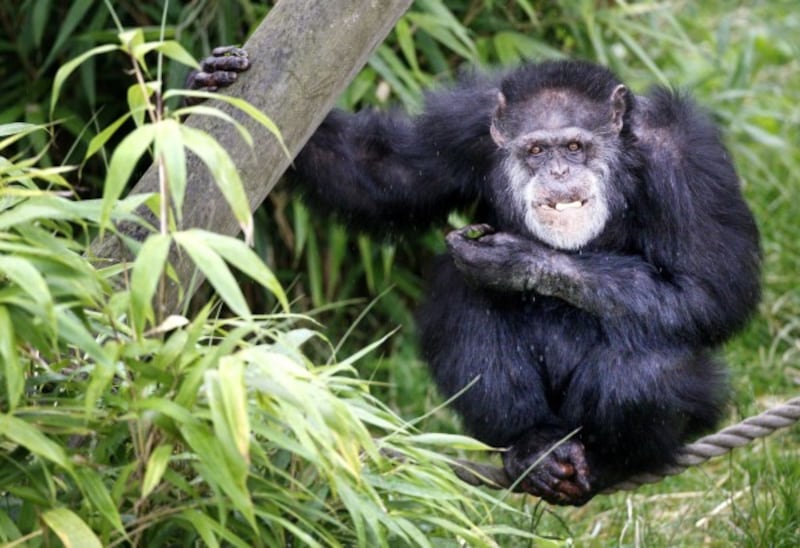Scientists have learned that great apes including chimpanzees and orangutans have absolutely no appreciation of music whatsoever.
In fact, evidence suggests that the ability to comprehend and enjoy music is one of the most distinguishing features separating humans from their hairy cousins.
Chimps may share 96% of human DNA, but recent research shows they turn a deaf ear to music.
Which kind of makes us think if only Walt Disney had known, he might not have had hipster ape King Louie belt out “I wanna be like you” in The Jungle Book.

So basically, it makes no difference whether they are listening to Beethoven or Bieber – it is all just meaningless sound to them.
To carry out the study, scientists at the University of York created a “chimpanzee jukebox” that allowed captive chimps to select their favourite classical, pop or rock melodies, or simply tune into silence.
The animals, housed at Edinburgh Zoo and the National Centre for Chimpanzee Care in Texas, got to listen to works by Mozart, Beethoven, Adele and Justin Bieber.
But none of them showed any preference for any kind of music. Nor were they any more likely to choose a musical offering than silence.
Lead scientist Dr Emma Wallace, from the University of York’s Department of Psychology, said: “These results suggest that music is not something that is relevant to captive chimpanzees and are supported by recent work with zoo-housed orangutans that were unable to distinguish music from digitally scrambled noise.

“These results also highlight the possibility that music appreciation is something that is a uniquely human trait.”
Around 18 chimps in Edinburgh and 44 in Texas took part in the experiments.
The “jukebox” consisted of a touch-sensitive screen behind a grid which allowed musical choices to be made according to which part of it was pressed.
Lead scientist Dr Emma Wallace said: “I think it’s more than likely that hearing music the way we hear it is uniquely human.

“More research needs to be done on this but recent studies do indicate that music appreciation is something unique to us.
“There is a theory that suggests that human language started off with chanting and singing, so potentially complex language co-evolved with music.”
But she also stressed that just because great apes could not appreciate music, that did not mean they were incapable of feeling emotions.
“They’re not cultural heathens,” she said. “They can feel pain, happiness, all those sort of emotions. It’s just that their evolutionary path took a slightly different turn.”
The findings are published in the journal Public Library of Science ONE.








